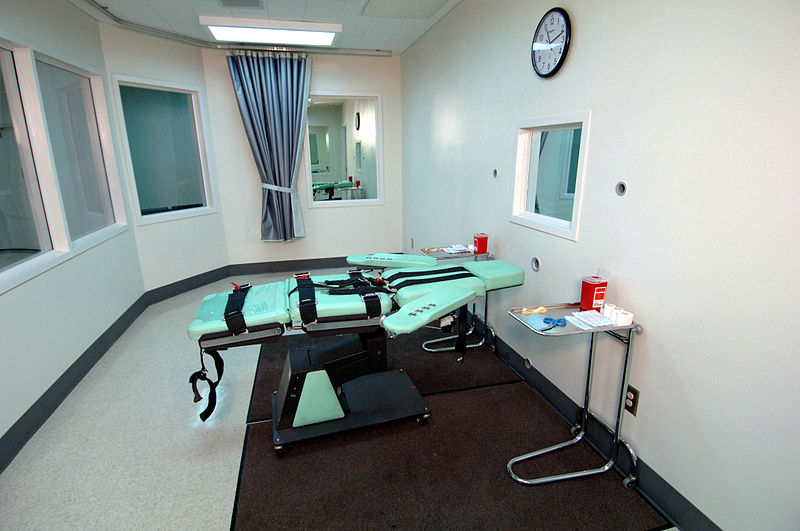
Eric Autobee was murdered in 2002 while working as a prison guard. The killer, Edward Montour, beat Autobee to death with a kitchen ladle.
Montour, who was already in prison for life, got the death penalty. At the time, the victim's father, Bob Autobee, says he wasn't sure how he felt about the death penalty.
Now, Montour is getting a retrial, and could get the death penalty again. That's motivated Bob Autobee to speak out against capital punishment. Autobee says he met with Montour in prison, and forgave him. And he says the death penalty process makes things worse for victims' families.
"The hate and anger that it brings out in an individual is more damaging to the individual than it is to the one you’re directing it at," Autobee says.
Before Montour's case, another infamous Colorado murder brought up the question of role victims' families have in determining sentences for convicted killers.
In 1993, Nathan Dunlap killed four people at a Chuck-E-Cheese restaurant in Aurora, Colo. Gillian McNally's cousin was one of the victims. McNally says her family fought to stop Dunlap from being put to death.
"Because of what happened to my cousin, I am fervently against violence of any kind," McNally says.
The families of the other three victims disagreed with McNally's family, and Dunlap got a death sentence. But this summer, before Dunlap was to be executed,Governor John Hickenlooper granted him a reprieve.
Ultimately, prosecutors decide what sentences to pursue. Bob Grant is a former district attorney in Adams County, Colo. Grant prosecuted Gary Lee Davis, the last person to be executed in Colorado back in 1997. He says he considered the preferences of victims' families, but that wasn't the only factor he weighed.
And Grant says, while it's a rare homicide that deserves the death penalty, there are some cases where there's no other choice.
"The character is evil, the crime they’ve committed is evil. There’s no redemption, and he deserves to look the devil in the eye," Grant says.









